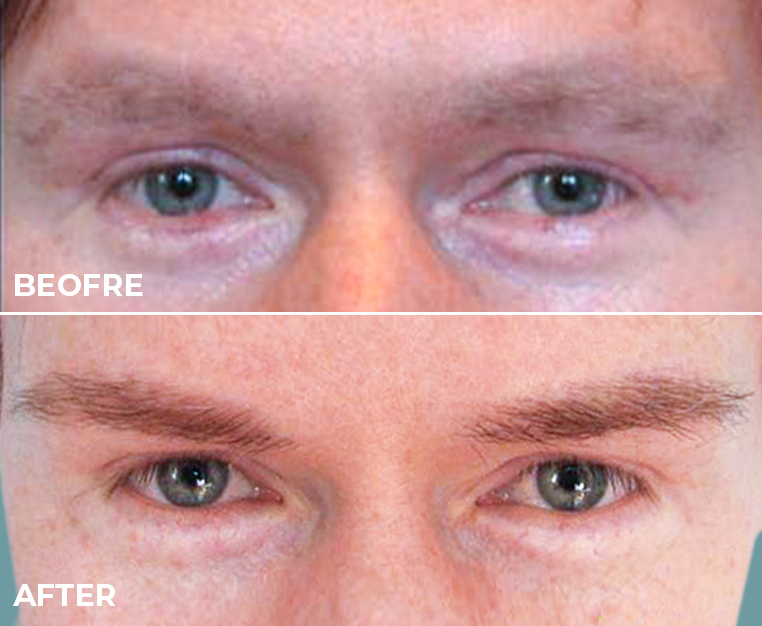Hair falls, and it’s not something any of us likes to see. The first sign is a receding hairline that starts from the top of your head and spreads out on the sides. This is a type of hair loss known as male-pattern baldness (MPB). It’s the most common one, but it’s not untreatable.
Studies have shown that nearly 90% of men experience hair loss from early on in their life. This leads not only to a slight change in their appearance but also to a drop in their self-esteem and confidence levels which could transition to anxiety and depression.
However, studies have also been done on alleviating hair loss without the need for surgical interventions. Published in the JAMA Dermatology journal, the meta-analysis looked at 23 previous works done on the medications most commonly used in the haircare industry, those being dutasteride, finasteride and minoxidil.
Different doses of the medications were taken orally or applied directly on the skin for periods ranging from two to four months. Dermatologist Dr Anthony Rossi emphasises the importance of this study: “This meta-analysis is important. We don’t have randomised clinical trials that compare these medications for male pattern baldness against one another.”
Low Dosage of Minoxidil on the Scalp Ranked Fifth
The least effective treatment, ranked in fifth place for effectiveness, was minoxidil used in low dosage. Functioning as a vasodilator, the medication widens blood vessels to allow more oxygen to circulate to the hair follicles.
According to the study, applying a 5% topical solution of minoxidil to the scalp resulted in limited hair growth. The medication was even less effective when applied in lower doses.
Finasteride in Reduced Dosage in Fourth Place
Finasteride taken in reduced daily dosages of 1 milligram was ranked in fourth place for effectiveness. The medication, taken in the form of pills, was able to provide satisfying results in lowering hair loss and increasing hair growth. Although ranked in fourth place, it brought reasonable growth to mature hair after 48 weeks.
Minoxidil Is Ranked Third
Minoxidil was revealed to be the third most effective treatment. Five milligrams of minoxidil in a pill for oral intake reduced the symptoms of MPB.
Compared to other treatments with a lower amount of minoxidil, this dose resulted in a greater ‘terminal’ hair count after two months. Terminal hair is categorised as hair that is more mature, thicker and longer, the type of hair responsible for the full head of hair effect, according to Dr Rossi.
Finasteride in Second Place
Finasteride in increased dosages of 5 milligrams per day and taken orally was the second most effective medication. The drug is approved by FDA for treating benign prostatic hyperplasia (BPH) and also curing hair loss.
Finasteride brought a significant increase in total hair count over 48 weeks. The total hair count includes both the terminal and the vellus hair on the head. Vellus hair is made up of short light strands.
Dutasteride Claims Top Spot
Finally, the top performance medication: dutasteride. According to the analysis, an oral daily intake of dutasteride in doses of 0.5 milligrams proved to be much more effective at reducing male hair loss than other treatments.
Similar to finasteride, dutasteride prevents the effects of enzyme 5-alpha reductase on producing DHT, which lowers testosterone levels. The drug was created and patented by GlaxoSmithKline in 1996, but it hasn’t yet been approved by the FDA as a hair loss treatment despite its effectiveness.
Dr Amy McMichael, a professor of dermatology, states that “In general, topical medications are going to have less systemic side effects than oral drugs, but topical treatments can be more laborious to use.”
Final Thoughts
These medications can boost hair growth without the need for expensive surgeries or complicated treatments. However, they also come with side effects that include itching, dryness, flaking and scaling. Some have even more serious side effects and should only be taken under medical supervision.
Regardless of the treatments your hair needs, whether it’s a surgical transplant or a topical or oral solution, personalised advice from experts helps you make the right choices. Vinci Hair Clinic offers a free consultation with its hair expert to all new clients. Book your appointment today!


